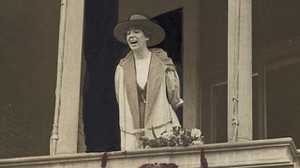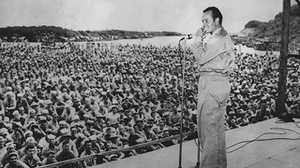How to Handle a Crisis?
From the Collections: The Presidents | Leadership in times of crisisCriticism and Hurricane Katrina
During his second term, President Bush was criticized for the federal government’s response to the devastating impact of Hurricane Katrina. “Katrina ends up being a media domestic version of Iraq,” said journalist Ron Suskind.
From the film: George W. Bush
The Oklahoma City Bombing
After the Oklahoma City Bombing, Clinton's ability to reach Americans on a personal level did much to help the nation's grief. "It’s kind of a throwaway line now, I feel your pain, but he literally could," says Robert McNeely. "I mean he could take people and just hug them and connect to them in a way and really listen to them."
From the film: Clinton
Assassination Attempt
On March 30, 1981, 70 days into his presidency, President Reagan was shot outside the Washington Hilton Hotel.
From the film: Reagan
Nixon's Gamble
In the spring of 1972, Nixon took a risk and responded to North Vietnamese aggression by bombing Hanoi, jeopardizing an upcoming arms control summit in Moscow.
From the film: Nixon
Johnson's War
Protests against the Vietnam War turned personal, with students blaming LBJ for the way the war was going. "He was frustrated because he couldn't end it and because he thought he couldn't win it," says John Connally.
From the film: LBJ
The Cuban Missile Crisis
Over the course of 13 days in October 1962, Kennedy avoided war with the Soviet Union through a willingness to proceed with caution -- and a gamble that Premier Nikita Khrushchev was just as horrified at the prospect of nuclear obliteration as he was. The negotiation would come to be known as the Cuban Missile Crisis and would be one of Kennedy's most lasting legacies.
From the film:JFK
Crisis in Korea
President Truman interpreted the North Korean attack upon South Korea as direct aggression from the Soviet Union. The Soviet Union's support for the invasion, however, was limited and not driven by the Soviet leader Stalin. "What the United States got involved with in 1950 was not aggression from the Soviet Union," says historian Walter LaFeber, but "an incredibly bloody Civil War in Korea."
From the film: Truman
Depression Relief
Franklin Roosevelt used the power of the federal government to relieve the suffering caused by the Great Depression.







